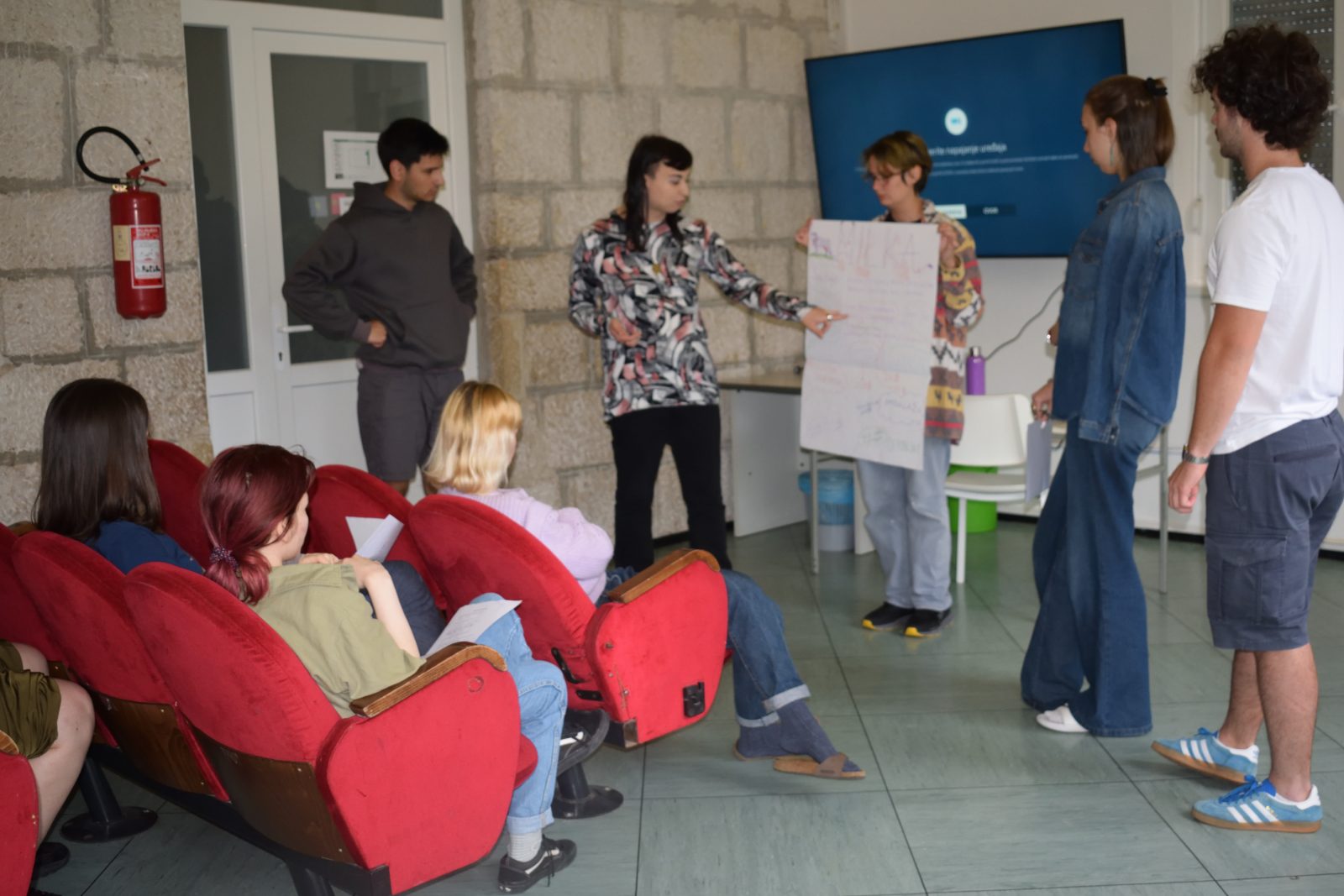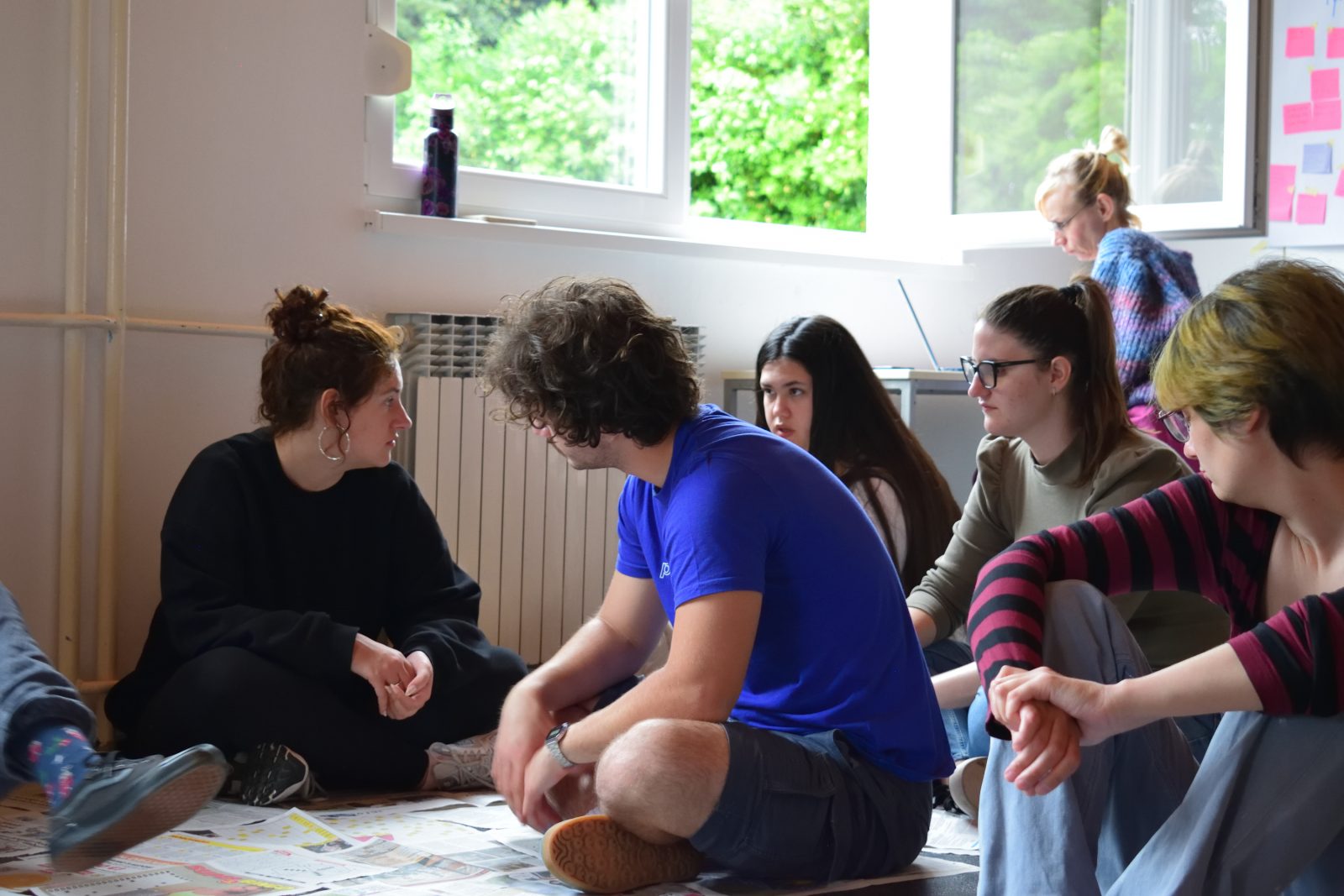
Participants from Montenegro — Jelena, Helena, and Darija, high school students from Nikšić and Bijelo Polje — stayed from May 2nd to 8th in Selce, Croatia, where the regional School of Sustainability was held, organized by Zelena akcija from Zagreb. Their participation was enabled through a public call within the Erasmus+ project The Story of the 1.5°C Limit, and the program gathered 16 young people from Croatia, Serbia, Bosnia and Herzegovina, and Montenegro.
The atmosphere during the school was exceptionally warm and open. Already on the first day, thanks to well-designed ice-breakers, all participants bonded and created good energy within the group. One of the favorites was the “human knot.” Every morning started with meditation and free writing, which proved to be a beautiful and calming way to enter a day full of activities, learning, and discussions.
A special impression was left by the trip to the old town of Vrbnik and the boat ride there. That moment brought the group closer together — through exploring narrow stone streets, swimming at the beach, and conversations under the sun. There were also evening ping-pong competitions which the participants followed passionately.
The program was thematically interesting and diverse. Through dynamic workshops and methods of non-formal education, the participants explored the causes of climate change as well as the social injustices that accompany it. It was especially interesting to learn how COP is organized, how countries participate, and how large corporations influence global policies through lobbying in their favor.
One of the activities was also Colombian Hypnosis, where participants felt how through bodily movements we can sense the power, oppression, and domination experienced by powerful and oppressed people in society — which further deepened the understanding of power structures.

A significant part of the program was dedicated to plastic, waste, and consumer culture. Through the film The Story of Stuff, participants saw how the consumption system encourages us to constantly buy things we do not need — for the profit of the industry. The participants concluded that corporations push plastic into everyday life to profit from natural resources, while individuals are burdened with guilt for the pollution problem.
The School also provided insight into activist methods, with an emphasis on “artivism,” a blend of art and activism. Participants learned rules, methods, and guidelines for writing climate fiction. One story imagined Podgorica in 2075, where due to extreme summer heat the city functions exclusively at night.
Of course, there was no shortage of fun! Evening socializing, quizzes, and various informal activities were well designed and led by facilitators Dora, Ana, and Aleksandra from Zelena akcija — who left a strong impression with their dedication and energy.
For our participants, the School of Sustainability was not only a space for acquiring knowledge — but also motivation to continue engaging with topics of ecology, climate justice, and activism. The knowledge about how global industry works, how actions are organized, and how an individual can contribute — they brought back with them to their communities, where they plan to share it through educational activities and examples of good practice.
